
How to set up targeted advertising on Instagram
Instagram is one of the key advertising channels for business, which allows you to quickly attract customers, increase brand awareness, […]

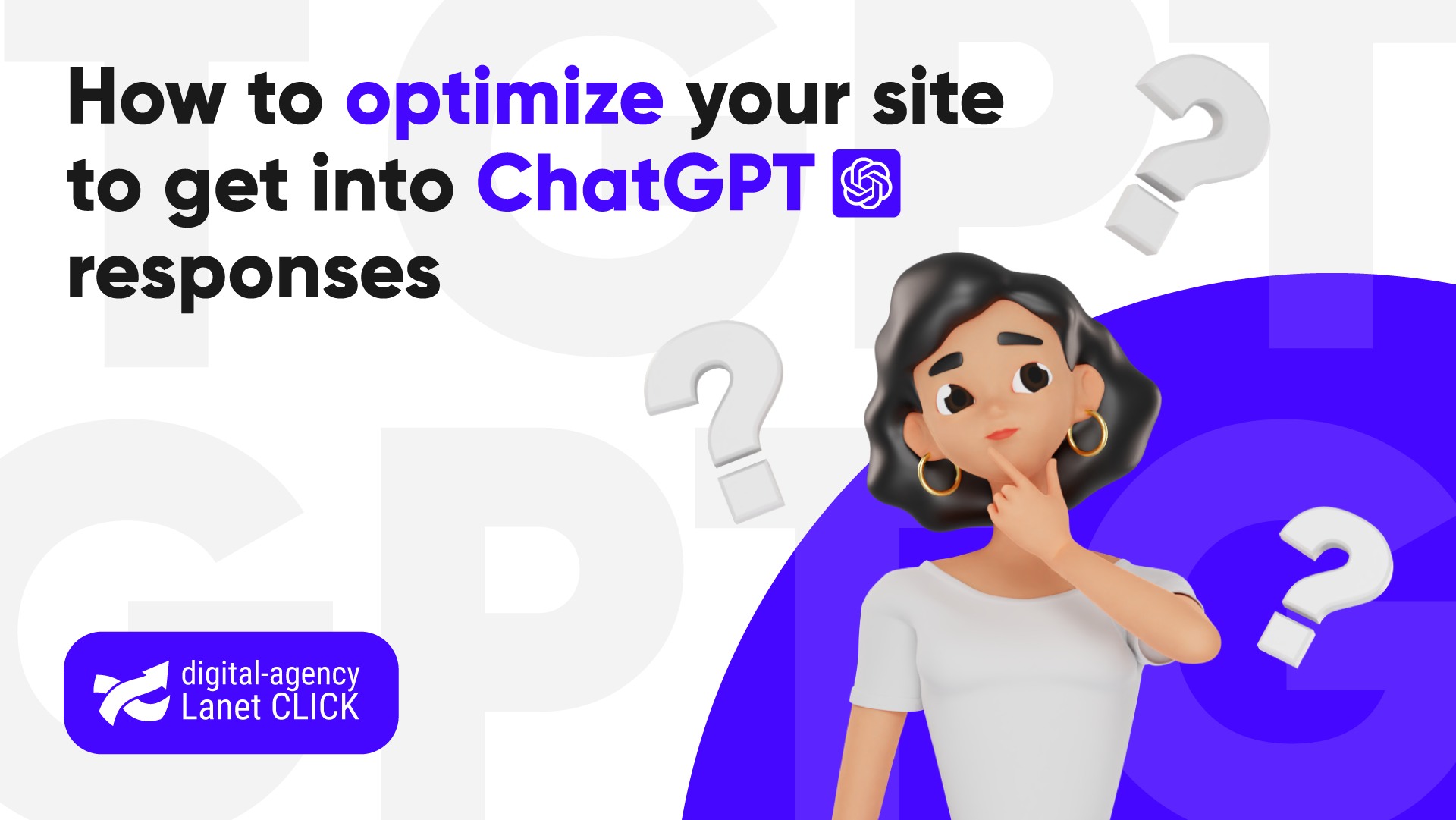
Artificial intelligence has already changed the rules of the game in search engines. Users are increasingly turning to ChatGPT and other LLM platforms instead of going to websites. In this article, we explain how ChatGPT is turning into Google’s main competitor, explain how to optimize a website for AI, and also share a real case of Lanet CLICK, how to achieve a 135% increase in traffic from LLM platforms in half a year.
We have already taken a step into the era of generative search, when users are increasingly choosing AI assistants over traditional search engines. Among the most popular neural networks are Gemini, Perplexity, Bing, Microsoft Copilot and, of course, ChatGPT. The latter, by the way, processes about 2.5 billion queries from all over the world every day, according to Axios. For comparison: Google processes about 14 billion searches.
Yes, ChatGPT is already turning into a serious competitor to Google. Thanks to the ability to provide fast and personalized answers, it not only simplifies search but also changes the very way users interact with information. Now, instead of dozens of links in the search results, you can get a specific answer in the form of text, advice or even an action plan, which makes the search process more intuitive and effective. For businesses, this means that optimizing your site for artificial intelligence is becoming not just an interesting additional option, but a critical component of digital marketing.
The new direction combines traditional SEO promotion with GEO optimization, that is, adapting content for generative search engines. Businesses that have implemented this strategy are already gaining an advantage in attracting traffic and retaining user attention.
Generative Engine Optimization (GEO) is content optimization to improve visibility in search engines that use artificial intelligence to generate answers to queries. These include ChatGPT, Gemini, Perplexity, Bing Copilot, Google AI Overviews and others.
In fact, GEO is an extension of classic SEO, which takes into account the features of generative language models and their ability to create personalized, expanded answers based on existing materials. After all, AI does not create answers on its own, but only rethinks already published content.
The main difference between SEO and GEO is that traditional SEO focuses on ranking a site in Google results, focusing on keywords, technical optimization, usability and link building. GEO is aimed at ensuring that the site’s content gets into AI answers. Therefore, AI SEO services are becoming critically important today for businesses that seek to maintain a stable presence in the digital environment.
ChatGPT does not index sites like Google, but generates answers based on a combination of pre-trained models and access to external search APIs, such as Bing Search API, its own knowledge bases or integrated APIs of other services. When ranking in ChatGPT Search, the neural network evaluates not only the content of the text, but also its structure, context and the authority of the source.
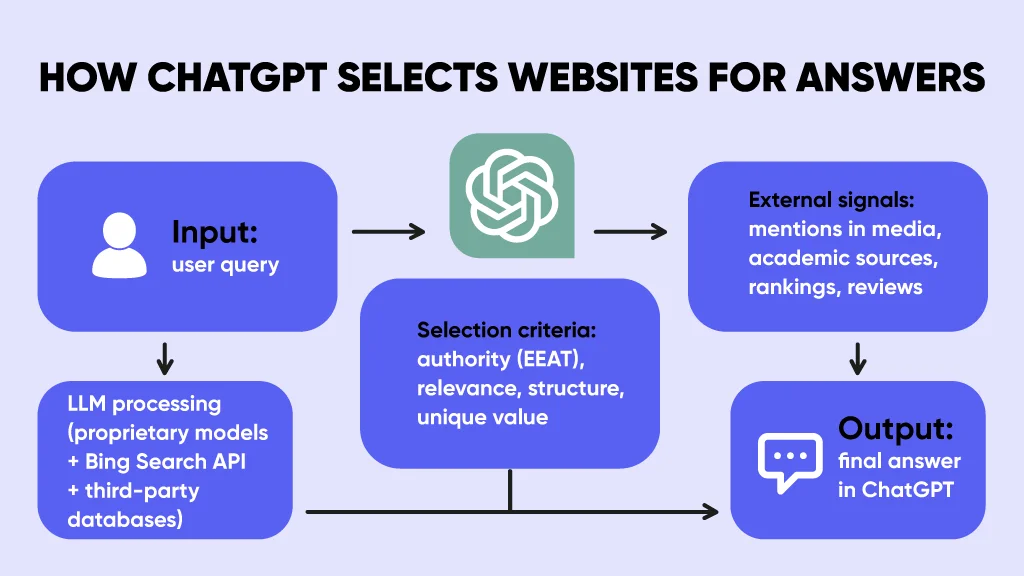
The main factors that influence the selection of content:
Taking these factors into account allows you to qualitatively optimize the site for AI, increasing the likelihood that its materials will be selected by the generative model.
Effectively optimizing your site for AI requires a comprehensive approach. We share practical steps that will help increase your site’s chances of getting into the answers of generative models.
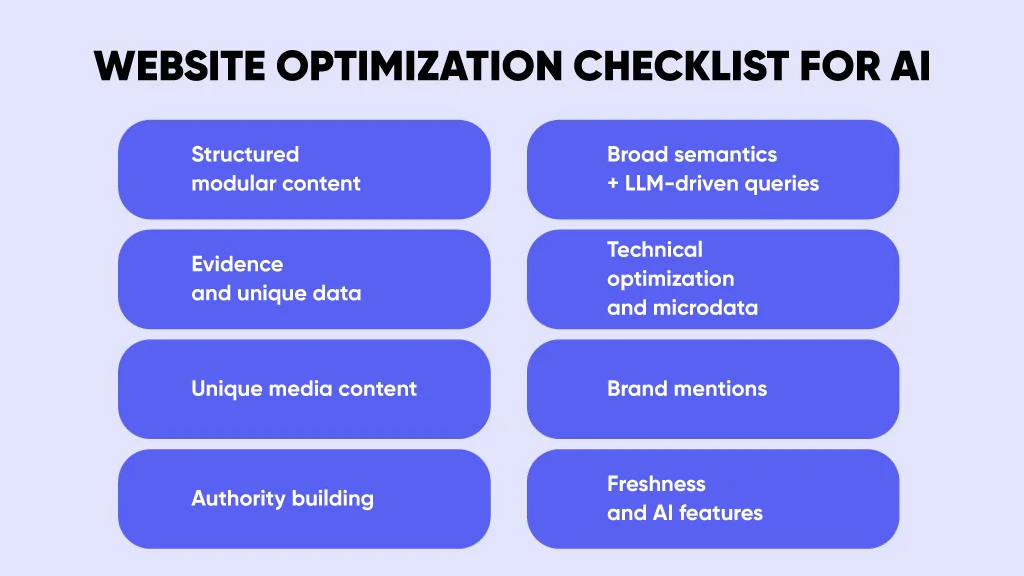
Use tables, lists, FAQs, glossaries, cases and TL;DR blocks for easy perception of information by the neural network. Add expert quotes, real stories and subjective assessment, avoiding fake expertise.
Collect long-tail keywords, SERP questions, model hints and semantic markers. Analyze data in Bing Webmaster Tools to optimize your site for AI for different search scenarios and user intent.
Publish your own research, statistics, comparisons and official sources. Infographics, surveys and methodologies increase the authority of the content and make it a valuable source for generative models.
Implement schema.org, JSON-LD and Open Graph markup, speed up page loading and use internal anchor links. This makes it easier for the neural network to process the content and improves its visibility in ChatGPT Search.
Add screenshots, graphs, videos and unique illustrations instead of stock ones. Visual elements make content more valuable and help generative models quickly extract information.
Get ratings, directories, reviews, mentions in Wikipedia, UGC and international media. Note that brand mentions are even more important than active links. Such external signals increase the authority and chances of promoting the site in AI.
Be active in social networks, niche communities, conferences and publish on external platforms. The expertise of the authors and the brand increase the trust of generative models in your content.
Regularly update materials and add new data. For large projects, you can implement RAG-chat – a built-in AI service that works with the site’s own content, while for most sites, the «Ask in ChatGPT / Perplexity» button is enough, which redirects users to an external service to work with AI directly. This signals the neural networks that the content is relevant and ready for use.
Tracking the effectiveness of site optimization under AI is critically important for assessing the effectiveness of the implemented changes and adjusting the strategy. This allows you to not only measure traffic but also assess how your content is perceived by AI systems, which directly affects visibility in ChatGPT.
To assess the effectiveness of AI optimization, you should pay attention to the following indicators:
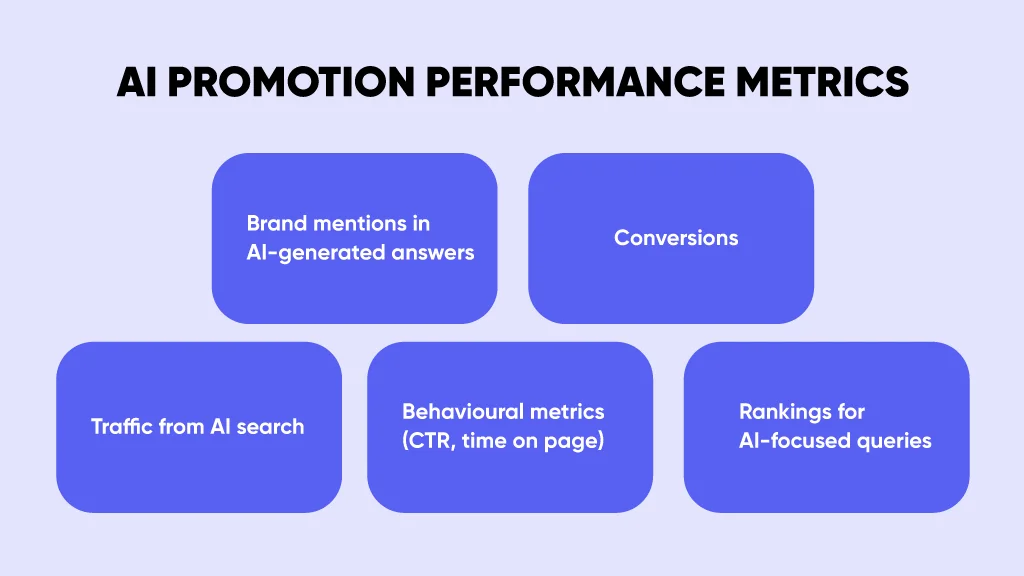
To effectively track your brand mentions in AI responses, we recommend using the following tools:
Using these tools will help you get detailed information about how your brand is represented in AI systems and adjust your strategy in time to improve results.
The task was to increase organic traffic from LLM platforms for the Internet provider’s website. To achieve this goal, a team of SEO specialists led by Natalia Deineka implemented a comprehensive strategy.
«Optimization for ChatGPT and other LLMs is becoming a new SEO standard. Therefore, it is necessary to change the vector of website optimization now so that they are a source of ready-made, clear and expert answers», notes the head of the SEO department.
The strategy included:

Google Analytics, Bing Webmaster, and Ahrefs Brand Radar were used to monitor the results. As a result, traffic from LLM platforms increased by 135% and the number of conversions was 25 for the period from 01.02 to 31.07, demonstrating the effectiveness of AI SEO website promotion in a short time.
Combining classic SEO and GEO optimization is the key to success in today’s digital age. The future of search will increasingly be shaped by AI assistants like ChatGPT. Users will prefer fast, structured and personalized answers, and brands that are the first to adapt their sites to generative algorithms and turn to GEO services for ChatGPT will have the opportunity to lead the market.

Instagram is one of the key advertising channels for business, which allows you to quickly attract customers, increase brand awareness, […]

2026 will be an important stage of change in the development of SMM, which will gradually begin to move to […]
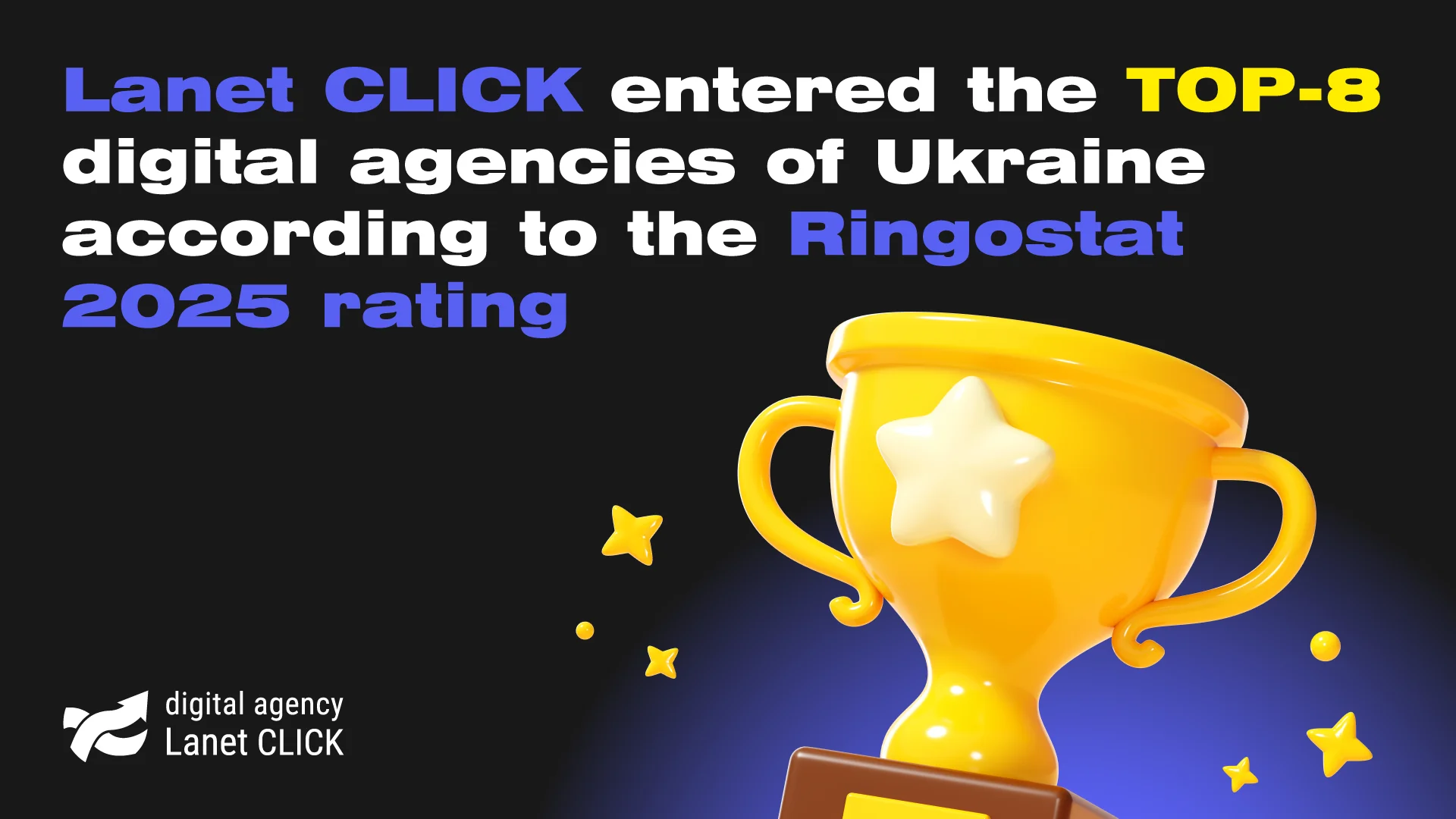
Lanet CLICK was included in the list of the best digital agencies in Ukraine according to the Ringostat 2025 rating […]
A good strategy, perfectly selected digital tools, and their effective application will allow the business to increase profits, grow the customer base, and form recognition and loyalty. Do you want something like that? Contact us.
You have taken the first step towards effective online marketing. Our managers will contact you and consult you soon.